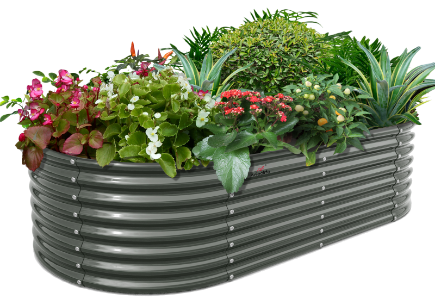Are you ready to take your gardening to the next level? Building a raised garden bed is a fantastic way to create a thriving and organized garden space. In this essential guide, we will explore the benefits of raised garden beds, the materials you'll need, step-by-step instructions for construction, and tips for maintaining your new garden bed.

The Benefits of Raised Garden Beds
Raised garden beds offer a wide range of benefits for gardeners of all levels. One of the key advantages is the improved soil quality. By using a raised bed, you have more control over the soil composition, drainage, and overall health of your plants. Additionally, raised garden beds can help reduce the strain on your back and knees, making gardening more accessible for everyone. They also provide better protection against pests and weeds, leading to healthier plants and higher yields.
Materials You'll Need
Before you start building your raised garden bed, it's important to gather all the necessary materials. You'll need untreated lumber, cedar or redwood are popular choices, to construct the frame of the bed. Make sure to use galvanized or stainless-steel screws to prevent rusting. You'll also need topsoil, compost, and other amendments to create a nutrient-rich growing environment for your plants. Lastly, consider adding a layer of landscape fabric at the bottom of the bed to prevent weeds from growing up into the soil.
Step-by-Step Construction
Now that you have all your materials, it's time to start building your raised garden bed. Begin by choosing a location that receives plenty of sunlight and is easily accessible for watering and maintenance. Then, assemble the frame of the bed by securing the lumber pieces together with the screws. Once the frame is in place, fill the bed with a mixture of topsoil and compost, ensuring it is evenly distributed and level. Finally, water the soil thoroughly to prepare it for planting.
Tips for Maintenance
After your raised garden bed is built and planted, it's important to stay on top of maintenance to ensure a successful growing season. Regular watering is essential, especially during hot and dry periods. Consider installing a soaker hose or drip irrigation system to make watering more efficient. Additionally, keep an eye out for any pests or diseases that may affect your plants, and address them promptly. Finally, at the end of the growing season, take the time to clean out the bed and prepare it for the next year.
By following this essential guide to building your first raised garden bed, you'll be well on your way to creating a beautiful and productive garden space. Whether you're growing vegetables, flowers, or herbs, a raised garden bed can elevate your gardening experience and provide you with a bountiful harvest for years to come.








